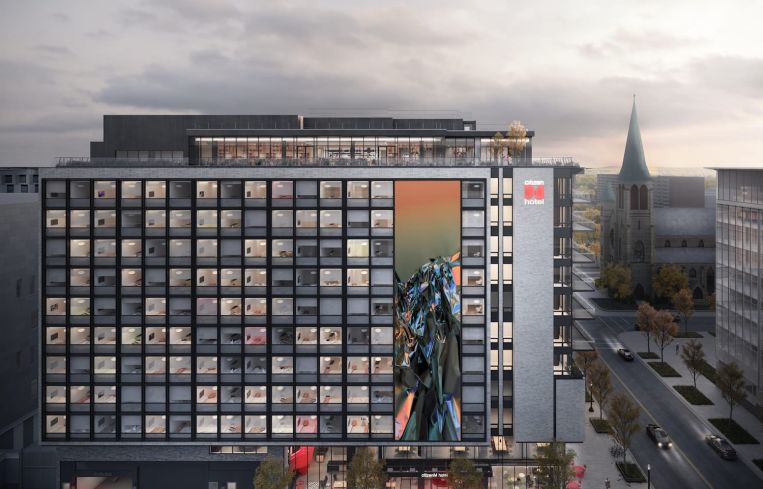DC Hotel Market On the Road to Slow Recovery, JLL Report Says
Federal government buoys a lodging market shocked by COVID
By Keith Loria April 26, 2021 11:01 am
reprints
The Washington, D.C., hotel market is recovering slower than the U.S. lodging market overall, yet it’s expected to be more resilient than other major cities once the pandemic subsides, according to a new report from brokerage JLL.
“Relative to other top 25 markets, D.C.’s year-to-date March 2021 RevPAR [revenue per available room] performance ranks 11th,” Michele Mahl, executive vice president in JLL’s hotels & hospitality group, told Commercial Observer. “The market’s performance is holding up better than other urban gateway markets, such as San Francisco, Boston and New York, which observed RevPAR declines ranging from 48 percent to 73 percent. However, not performing as well are more drive-to resort markets, such as Tampa and Virginia Beach.”
The pandemic seriously disrupted the U.S. hotel market, ending its longest expansion and driving occupancy to record lows.
In D.C. specifically, those occupancy levels decreased to 35 percent in hotels that stayed open this past year, resulting in the most significant performance drops in the area for more than two decades. For example, after 9/11, the 2002 levels fell to just 65.4 percent.
“The market is more reliant on government, corporate and international travel, which are demand types that are recovering more slowly than leisure demand,” Mahl said. “Washington, D.C., has had very strict protocols on COVID restrictions impacting visitation. D.C. is still in their version of Phase 2, which began on June 22, 2020.”
Mayor Muriel Bowser recently announced updates to the city’s status that will go into effect on May 1, which will allow the following activities that will aid in increasing hotel demand:
- Regional business meetings and conventions indoors and outdoors at 25 percent capacity, with city waivers required for more than 250 people
- Indoor dining capacity at 25 percent (or up to 250 people)
- Museums, galleries and exhibits at 50 percent capacity
- Non-essential retail indoors and outdoors at 50 percent capacity
The JLL report noted that the region’s hotel market will not improve to pre-pandemic levels until a return to something close to normal due to vaccinations.
“The reopening in D.C. is all dependent on the guidelines set forth in the beginning of the pandemic, whereby various metrics that need to be met in order to advance to the next stage,” Mahl said. “The hope is with widespread vaccination, the pace of reopening will improve significantly and, as a result, demand will increase. In addition, international restrictions have to be lifted and more business travel needs to pick up.”
Still, government demand probably insulates D.C. from getting worse.
In fact, of the 16 core urban lodging markets looked at in the report, the D.C. central business district registered the smallest variance in year-over-year RevPAR growth from 2019 to 2020, coming in at 3.9 percent, compared to 6.3 percent of the total U.S. market.
“Washington, D.C.’s economy benefits from steady demand from the federal government, in addition to numerous associations, organizations and embassies,” Mahl said. “As a result, the market has shown the lowest volatility in RevPAR since 2000 as compared to other major markets.”
Additionally, the area’s robust development pipeline, which includes residential, office and retail, is expected to have a positive impact and act as a catalyst for future growth.
Destination DC, the area’s convention and visitors association, estimates that by 2022, 20 million domestic visitors will return to D.C., setting up a positive lodging market.
Notably, the report said that D.C. is among the most stable global investment markets and is forecast to return to a top-tier ranking in the lodging market once the pandemic subsides.
“The recent acceleration of demand that we are seeing around the country, we expect to see in D.C. as well, as the city reopens,” Mahl said. “The summer will be very telling on the recovery as leisure visitation picks up in urban markets. The market should be in a better place, with a full year of vaccines being widely distributed. This will continue pushing leisure demand and motivate more corporate demand.”



